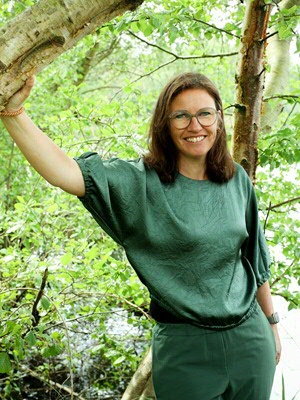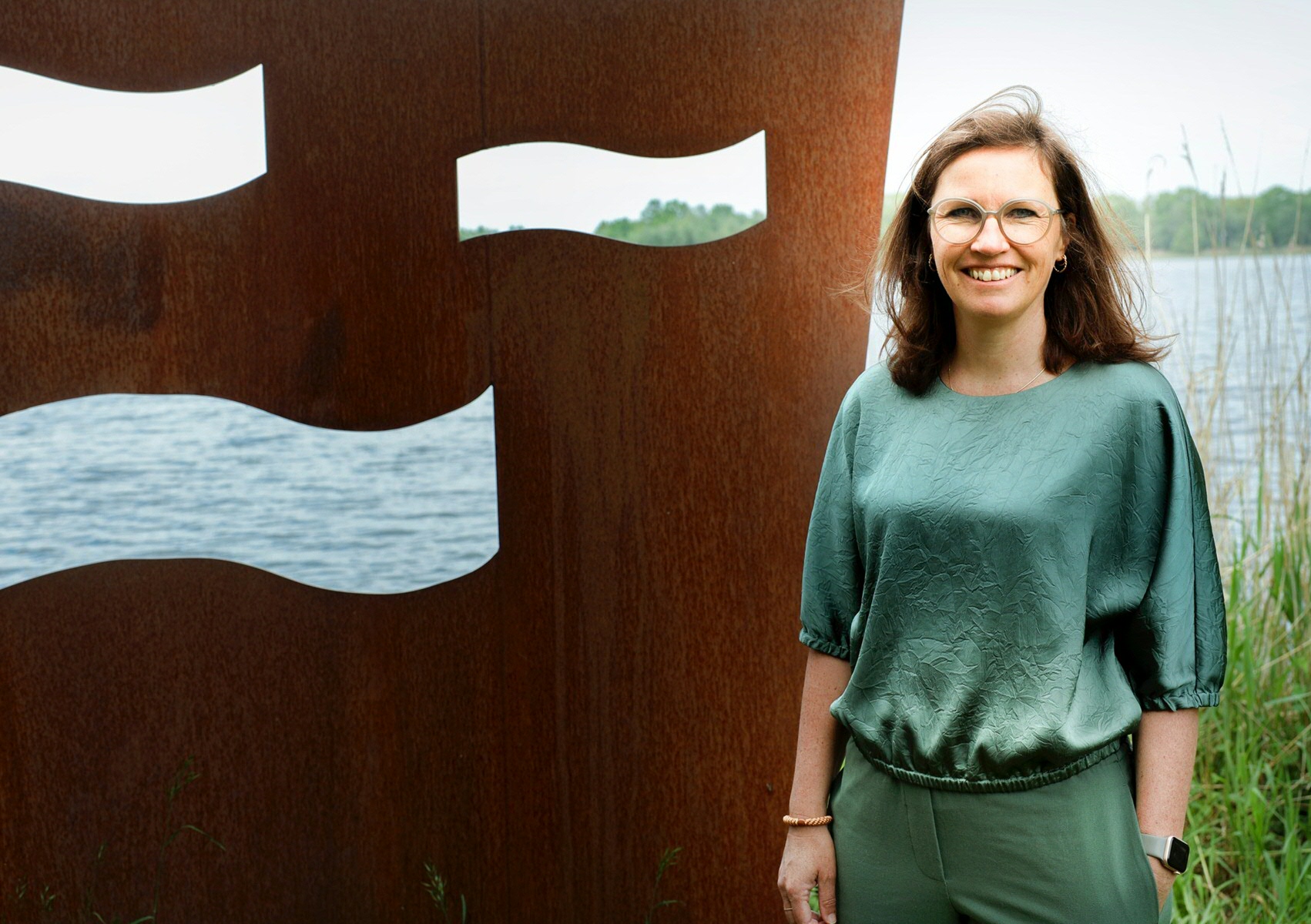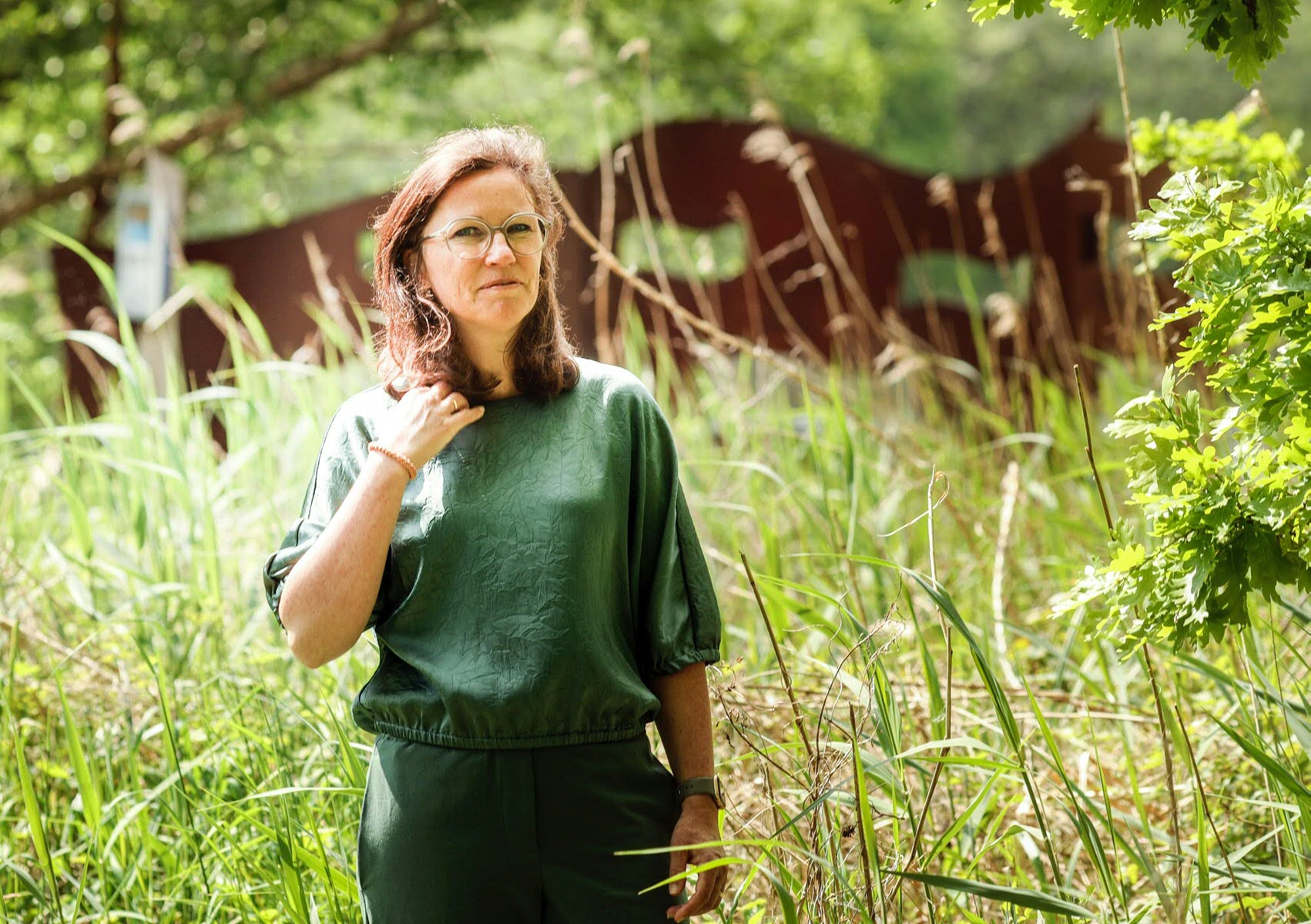‘Do not forget children's interests’

Whether it is about migration, the earthquake issues in Groningen, or placement in foster care, remedial educationalist Elianne Zijlstra emphasizes that the interests of children are often overlooked. With her research, she aims to change this.
Text: Beau Oldenburg / Photos: Henk Veenstra
‘The interests of children should always be the most important guiding principle regarding decisions that concern them’ reads Article 3 of the Children’s Rights Convention that was signed almost universally in 1995. However, according to remedial educationalist Elianne Zijlstra, the practical implementation of this convention falls behind, also in the Netherlands. ‘The Committee on the Rights of the Child has rapped the Netherlands over the knuckles several times already.’
Tension
According to Zijlstra, migration is one of the areas where it goes wrong. She says: 'The interests of children have long been overlooked there.’ ‘The Dutch government states that these interests have already been processed in policy and therefore do not need to be assessed individually. But that is not correct: there is, in fact, tension between the interests of asylum and refugee children and the policy that is primarily focused on repatriation and decreasing influx.’
Perspective
In a recent research project, Zijlstra and her colleagues studied what asylum and refugee children need to develop healthily. ‘This does not only involve basic needs such as food and shelter, but also education, contact with children of their own age, and stability,’ she explains. ‘Children really need perspective.’
Expert
Zijlstra immediately puts the knowledge she acquires from her research into practice. ‘Lawyers have asked me to help them represent children's interests in asylum procedures,’ she explains. ‘Together with a group of approximately 130 voluntary remedial educationalists and psychologists throughout the country, we chart per child how their development is currently progressing, and what the expectations are if the child will stay in the Netherlands or will return to their country of origin. The reports we write based on these analyses are presented by lawyers as experts’ reports.’

Impact
Although she aims to make a change, Zijlstra does not consider herself an activist. ‘We are trying to scientifically tackle societal injustices,’ she stresses. ‘Our message is based on knowledge.’ She adds: ‘That is what I like about science: it can really make a difference and have a practical impact.’
Earthquakes
Zijlstra is also involved in the impact of the earthquakes in Groningen on children and families. ‘Until about 2017, little attention was paid to the effects of earthquakes on children,’ she explains. ‘My colleagues and I conducted the first scientific research on this topic.’ Their study showed that children in earthquake zones experience anxiety and suffer from the way damage is being handled. It also influences the family dynamics and children's trust. To restore the latter, Zijlstra emphasizes that it is crucial to involve children more in the solution of the issue. Together with young people, she intends to conduct participative action research, in which these young people will talk to societal organizations about how their perspective can be considered in future decision making.
Out-of-home placements
Out-of-home placements are another important theme for Zijlstra. ‘Actually ,the same principle applies: the needs of children and young people are insufficiently taken into account,’ she explains. According to Zijlstra, the system of youth care is focused on the short term and ‘do it yourself’. However, some of the young people cannot manage that. They will then go from one healthcare provider to the next. ‘You would want children who can no longer live at home to have as much continuity and perspective as possible.’

At home
Fortunately, Zijlstra can see something changing. Together with her colleagues, she studies small-scale residential settings where young people experience more perspective. ‘No large groups, only four to six young people. And a fixed group of- often residential- care providers. Instead of making the residence as ‘vandal-proof’ as possible, it is made cosy. For example, young people are allowed to decorate their own room and keep these belongings when they return home or move out on their own.’ The study is still ongoing, but the first results are promising. ‘Children feel valued and recognized,’ she says. ‘Their interests have often been overlooked, but they now have the opportunity to make their own choices.’
Listening
To sum up, Zijlstra thinks we need to listen to and collaborate more with children. ‘Listening to children does not always mean you have to do what they want,’ she emphasizes. ‘But if you take their interests seriously, you need to understand their perspective.’ She concludes: ‘We really need to change our approach.’
More information
| Last modified: | 28 May 2024 4.14 p.m. |
More news
-
17 December 2024
Autism in women: masking takes its toll
Women with autism are often diagnosed later than men. Researcher Yvonne Groen developed a screening tool together with her colleagues to simplify the diagnosis.
-
26 November 2024
The fear of eating
Renate Neimeijer conducts research into eating disorders among children and young adults. Her current research focuses on ARFID: avoidant/restrictive food intake disorder.
-
05 November 2024
Do parents have any influence on whether their children wear 'pink' or 'grey' glasses?
How does a positive outlook actually develop? How important is upbringing in this regard? And what kind of role does optimism actually play in the daily lives of parents and children? Charlotte Vrijen is trying to find an answer to these questions....
